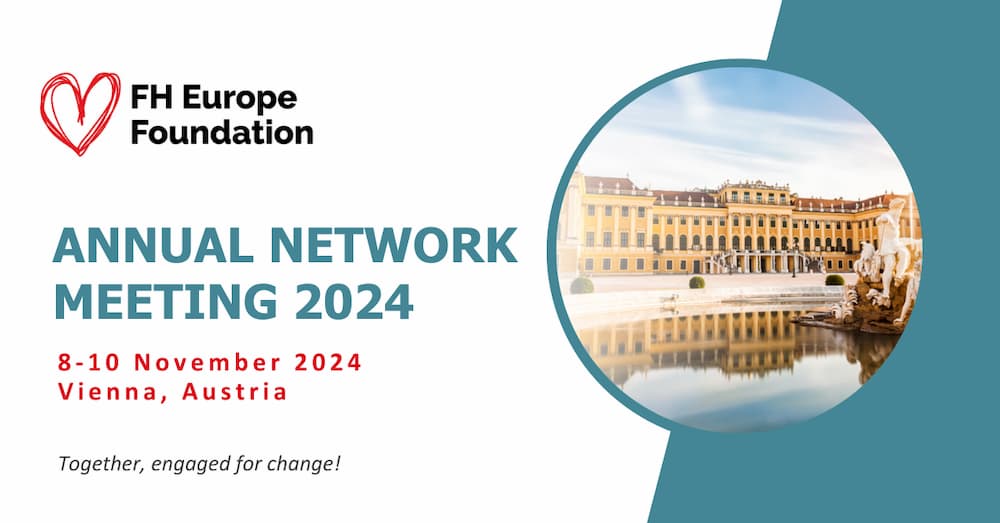
With this event slogan, we celebrate for the second year in a row the achievements of FH Europe Foundation Network and the wider community. We emphasise the importance of a multistakeholder collaboration and a meaningful engagement of patients, caregivers, advocates, scientists and researchers, healthcare professionals, industry representatives, policy makers, regulators, politicians and many other important players in the wider space of health and prevention. Simultaneously, it is a call to action to build and drive engagement. Our aim is to engage others and increase their involvement – as an individual, as a family group and as a community. In this way we will create the positive change we strive for on behalf of the patients and citizens we represent.
This is why we partner with FHchol, the FHEF Network Member organisation in Austria. Together we hope to create an impactful programme, which builds on the experience and expertise of both organisations and helps activate and engage the local community of patients and experts from Vienna and Austria. Learn more about FHchol Austria here.
The visual theme is the Tree of Hearts by Sara Otter, our Artistic Ambassador. It depicts beautifully what FH Europe Foundation stands for. The diversity and the sheer number of people affected by familial lipid conditions, like FH, HoFH, elevated Lp(a) and FCS.
The tree, just like any family tree, symbolises the aspects of genetics and inheritance which play a key role in how these conditions are passed on. Over 1.6 billion people of different ages, races, sex, and nationality, are represented by hearts of different colours, shapes and sizes. The hearts also symbolise the impact of the conditions on those close to the patient and can relate to heart (CVD) risk factors.

The Tree of Hearts combines different colours associated with lipids in the bloodstream, from yellow, orange, pink and red. These colours are all vibrant, positive, rich and engaging, just like the community we are …always together, engaged for change!
The four disease-specific webinars, preceding the main event are open to the public and play a crucial role in enhancing health literacy about the four inherited lipid conditions in our scope – HeFH, HoFH, LP(a), and FCS, while helping expand our reach. This year the focus is around treatment and related issues.

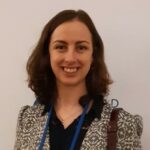
Sophie Millar, EU Policy and Advocacy Manager at the European Society of Cardiology (ESC), combines a strong scientific background with significant expertise in healthcare policy. She holds a PhD from the University of Nottingham, where she researched the hormone osteocalcin and its potential impact on cardiovascular health.
Before joining ESC, Sophie was Associate Director, Strategy and Healthcare Systems at the European Federation of Pharmaceutical Industries and Associations (EFPIA). In this role, she advocated for better cardiovascular and diabetes healthcare policies through EFPIA’s dedicated platforms, working with European and national policymakers to improve early disease detection and management. Sophie's work reflects her dedication to advancing health policy through evidence-based initiatives, aiming to enhance healthcare systems and patient outcomes across Europe.
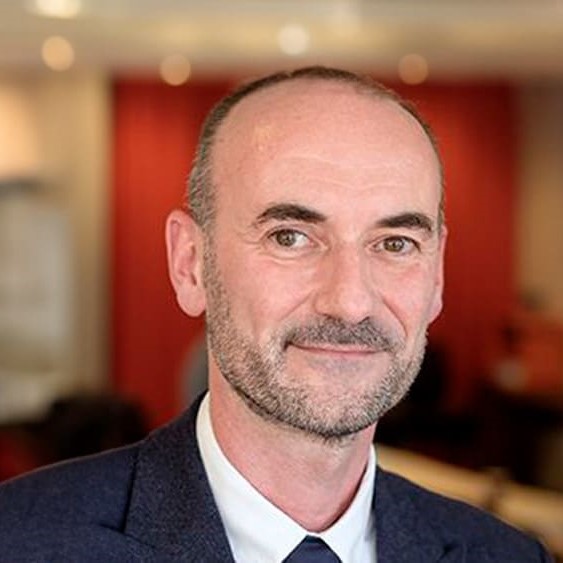

François Houÿez has worked as a patient advocate since the early 1990s (HIV/AIDS, Act Up -Paris and EATG) and joined EURORDIS in May 2003. He now works as Information & Access to Therapies Director & Health Policy Advisor.
He represents EURORDIS at the Patients’ and Consumers’ Working Party at the European Medicines Agency (EMA). He also represents EURORDIS at the Health Technology Assessment Network, and in CIOMS Working Group XI on Patient Involvement in the Development and Safe Use of Medicines.
François supervises EURORDIS’s programme for Community Advisory Boards (EuroCAB) and the European Network of Rare Diseases Help Lines.
He pioneered patient advocacy with the European Medicines Agency as part of the first patients’ delegation that engaged in dialogue with the Agency back in 1996 and has continuously been involved in the agency’s activities during the last 26 years.
François compiles trend information, and regularly fields questions from rare disease patients having issues with access to treatments (especially marketing authorisations, health technology assessment/pricing/reimbursement, compassionate use, shortages, and pharmacovigilance).
François is also a patient.
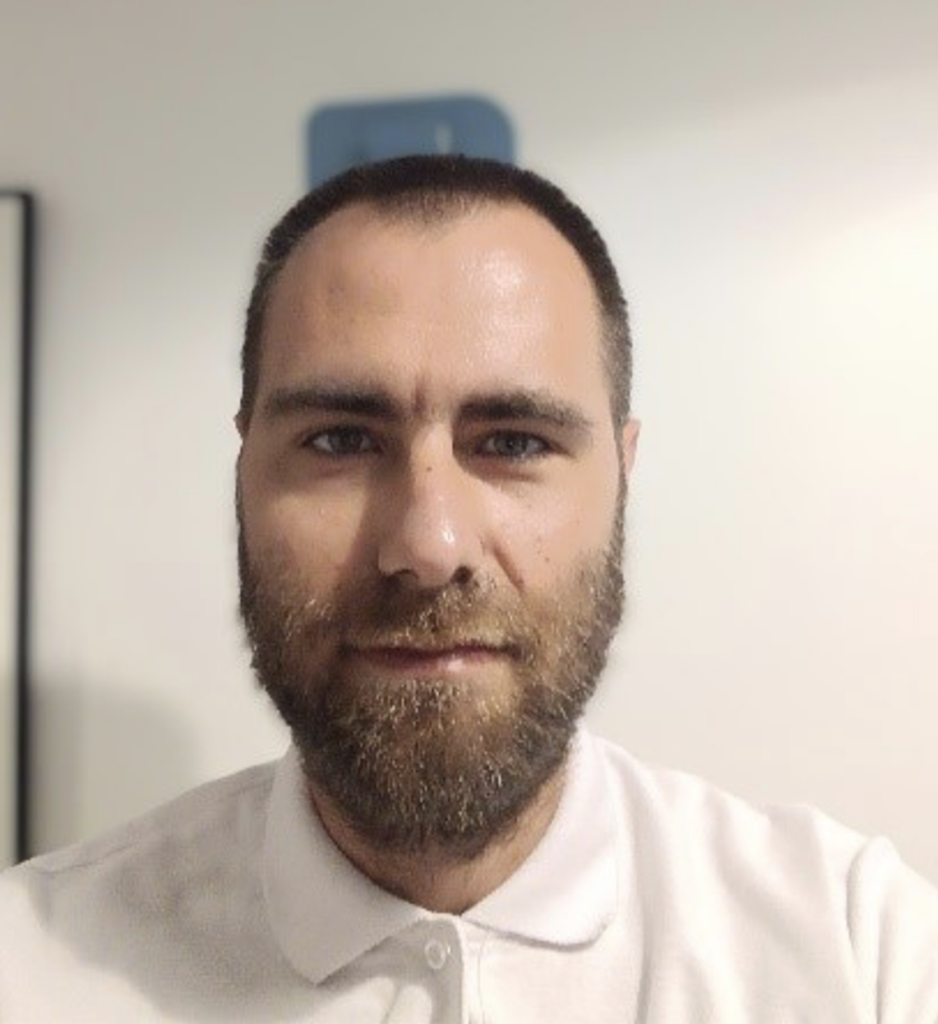
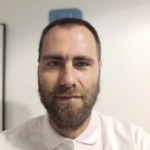
Athanasios (“Thanos”) Pallidis was born in 1990 in Greece. He was diagnosed with Homozygous Familial Hypercholesterolaemia (“HoFH”) at the age of four. Soon after his diagnosis, Thanos was put on a combination of lipid lowering drugs, followed by an LDL apheresis, the only available and lifesaving treatment at the time. In 2013, a Greek FH patient association was founded. Thanos was one of the founding members, and the Vice-President of the Board at the time. He contributed to raising awareness about FH among the Greek medical community and the public in general. In 2015, he became the President of the Board for a three year term. During his presidency, the Board successfully advocated for a ruling, whereby Homozygous FH students could enter public university based on their last high school year’s scores and were exempt from the obligation to take the national final exams. Athanasios contributed to the global policy and advocacy paper, ‘The Global Call to Action on FH’, and his negotiations with the Greek Ministry of Health led to an improvement in the quality of life for patients as well as their families and caregivers. His commitment to Familial Hypercholesterolaemia patient advocacy at a local and European level has improved care for patients and the resources available to them. Additionally, He received a bachelor’s degree from the Department of Nursing, and he’s representing the Greek FH patient association in the European FH patient network ‘FH Europe Foundation’
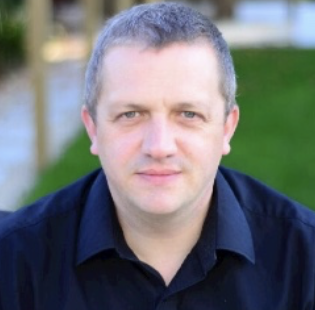
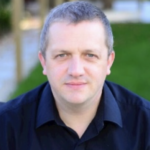
I am the father of three boys, two of whom have been diagnosed with FCS, one born in 2000 and the other in 2006, our oldest son doesn't have the condition.
We discovered the condition when our youngest son was 3 months old. He had started to vomit his feeds (he was breast fed) and over a period of two days he became increasingly unwell and was finally rushed to hospital where it was found he had an enlarged liver and spleen and a severely occluded duodenum. After 5 weeks in hospital he was diagnosed with FCS and our other two sons were tested, resulting in a diagnosis for the middle boy, then aged 6.
Over the intervening years there have been many challenges, not just the highly restricted diet, but also with the emotional impact this can have, particularly through the teenage years. Throughout we have had fabulous support from the metabolic disease clinic at Great Ormond Street Hospital.
Our two younger boys are now 15 and 20 respectively, and generally fit and well. The older of the two has transitioned to adult services and has become really good at maintaining his diet and taking responsibility for his own wellbeing.
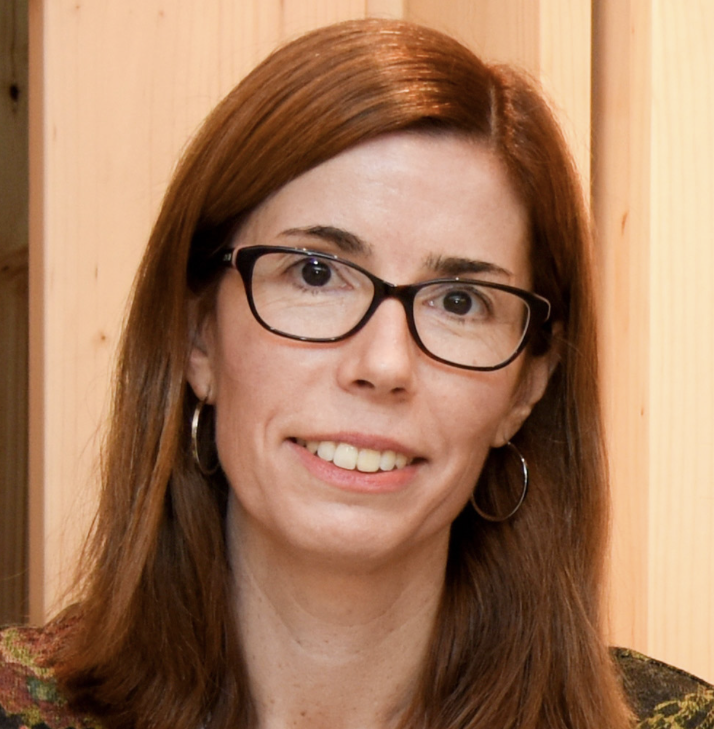
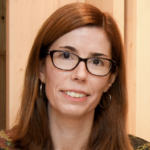
Dr Nafria Escalera is Head of the Patient Engagement University Department at Saint Joan de Déu Barcelona Children's Hospital
She has long experience in the field of the involvement of patients and families in research initiatives. Her PhD was in the patient involvement in paediatrics field, specifically working in the rights of the patients accessing to cross-border access clinical trials.
Funder and member of the Steering Committee of eYPAGnet (European Young Patients Advisory Group Network), Coordinator of Kids Barcelona (YPAG of Sant Joan de Déu Children’s Hospital), Co-Chair of Children’s Medicines Working Party of EFPGCP and Chair of the Cross-Border Access to Clinical Trials working group of EnprEMA (European Network of Paediatric Research of EMA).
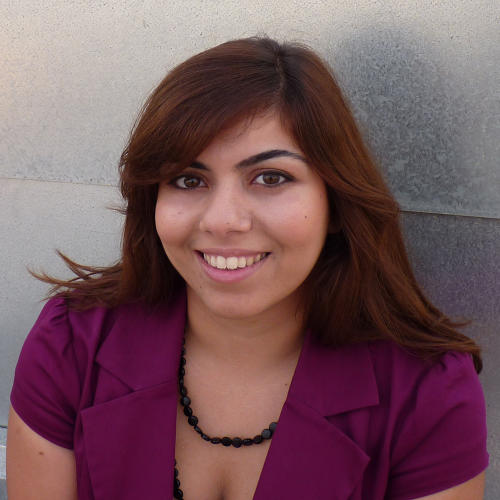

Andrie Panayiotou is Associate Professor in Public Health at the Cyprus International Institute for Environmental and Public Health, CUT, since 2011. She is an epidemiologist with special interest in preventing cardiovascular disease and atherosclerosis and her work has focused mainly on risk factors and biomarkers (genetic, biochemical, environmental and social) for cardiovascular health and disease, while she has recently expanded research work to include risk factors for the cardiorenal syndrome and vascular ageing (arterial stiffness as a proxy for CVD), under the “common grounds for disease” hypothesis. Since 2011 she has established and heads the Cardiovascular Epidemiology and Genetics lab at CII (CVEG –www.cveglab.cut.ac.cy), a dry lab, which houses relevant equipment for arterial stiffness measurements (Complior Analyse, ALAm Medical Inc) and data analysis. The CVEG team includes post-graduate/PhD students, as well as MD/research associates. She additionally co-ordinates “The Cyprus Study”, an on-going general population cohort study which she helped set-up and which participates in several large international consortia publishing joint results in high-impact journals such as Nature Genetics, JACC, BMJ and others (see list of publications). She is experienced in study design, logistics, including sample acquiring and storage, and analysis of large epidemiological studies. AP is also the Secretary and founding member of the newly established Cyprus Atherosclerosis Society (CAS), while she also sits at the board of the National Bioethics Committee and heads the Cyprus Unit on Bioethics under the UNESCO Chair in Bioethics (Haifa). She was recently appointed by CAS as National Lead Co-investigator to set-up the Cyprus National Registry for Familial Hypercholesterolemia (Cyprus-FH), part of a global effort on FH (EAS-FHSC). In 2024 Andrei and CUT have been a partner in the PERFECTO project whose focus is to move forward the implementation of FH Paediatric Screening across Europe by creating a more enabling and supporting environment, focussing especially on countries where CVD burden is the highest and FH awareness is lower among wider stakeholders.
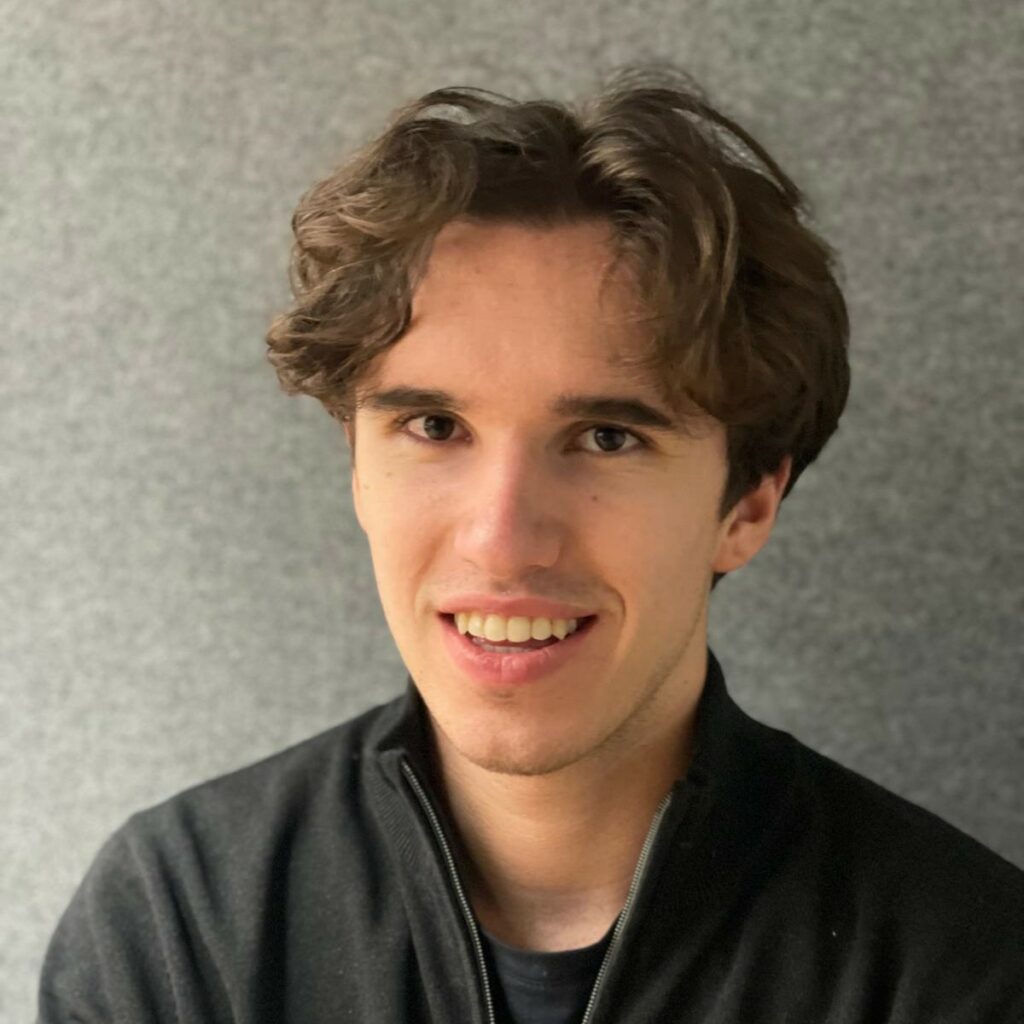

Felix Krainer, a 23-year-old Austrian social media expert, is the founder of Planet Matters, a global cleanup movement dedicated to tackling plastic pollution. With over 3 million followers on TikTok, Planet Matters mobilises volunteers from more than 30 countries to organise environmental cleanups in their communities. Felix’s expertise in social media has helped build an engaged worldwide community focused on actionable environmental impact. Through the Planet Mattersapp, users are rewarded with "Planet Coins" for collecting plastic waste, which can be redeemed for gift cards and discounts from partner companies, driving sustainable change and inspiring others to take action.


Dianne, a Young Patient Ambassador living with HoFH, began apheresis treatments at just four years old, requiring weekly hospital visits. Thanks to new medication, she now only needs treatment once a month. In her free time, Dianne enjoys horse riding and spending time with friends.
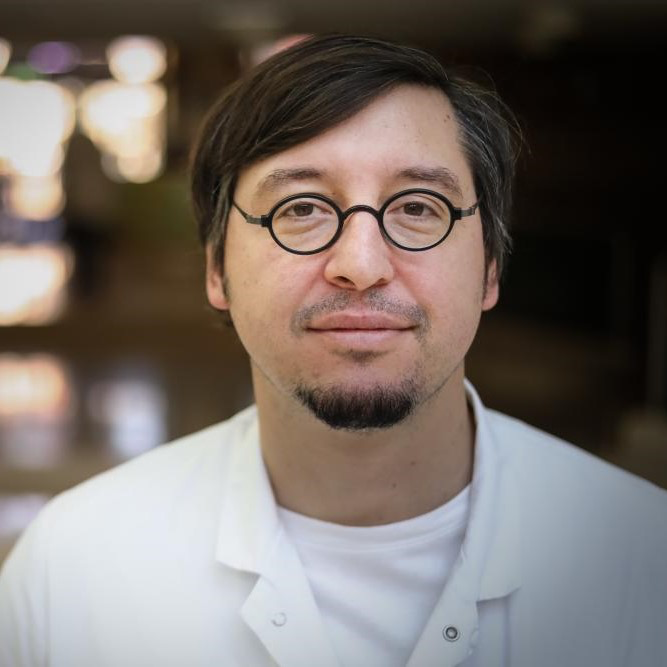
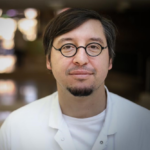
Urh Grošelj, MD, PhD, paediatrician is an Associate Professor of Paediatrics and Asisstant Professor of Medical Ethics at the Faculty of Medicine, University of Ljubljana, Slovenia and member of National Medical Ethics Committee of Slovenia.
He obtained MD and PhD degrees at the Faculty of Medicine, University of Ljubljana and MA degree at the University of Leuven, Belgium. Since 2014 he worked as a staff metabolic paediatrician at the Department of Paediatric Endocrinology, Diabetes and Metabolism, UMC - University Children’s Hospital Ljubljana, Slovenia. In 2022 he became an Associate Professor of Paediatrics and Assistant Professor of Medical Ethics at the Faculty of Medicine, University of Ljubljana, Slovenia. He also serves as a member of the National Medical Ethics Committee of Slovenia (from 2013) and have served as a deputy-member of the Committee on Bioethics (DH-BIO) Council of Europe (2012-2017). His main clinical and research interests include rare diseases, familial hypercholesterolemia, rare and secondary dyslipidemias, genetic disorders and screening programs in neonatology/pediatrics and medical ethics. Altogether, he (co)authored over 100 peer-reviewed publications.
Prof. Grošelj is co-leading the Slovenian program of newborn screening (clinical part) and leading the national program of universal familial hypercholesterolaemia screening (which is performed nation-widely in 5-year-old children), including the programme of modern NGS diagnostics of primary dyslipidaemias at the UMC Ljubljana. He is also a member of the working group for the National Registry of Non-malignant Rare Diseases and coordinating the paediatric part of the Slovenian National registry of familial hypercholesterolaemia and rare dyslipidaemias, serving as a National Lead Investigator at the EAS FHSC. He serves as an expert member of two ERNs for rare diseases – MetabERN and EndoERN (Adrenals) and is also a member of the newly formed ERN Working group on newborn screening and a member of EURORDIS working group on newborn screening. He has been a WHF Emerging Leader and a previous Fulbright Visiting Scholar at Stanford University (2021/2022). From 2024 he serves as the vice-president of the Slovenian Heart Foundation.


Olivia was diagnosed with Homozygous Familial Hypercholesterolaemia (HoFH) at the age of four and began receiving LDL apheresis treatments at six. In 2019, Olivia and her family joined a clinical study for a new medication, which proved highly effective, allowing her to reduce her apheresis frequency from weekly sessions to once every four weeks until she turned 18. Through her journey, Olivia’s experience highlights the advancements in HoFH treatment and the importance of clinical research in improving the lives of those with rare genetic conditions.
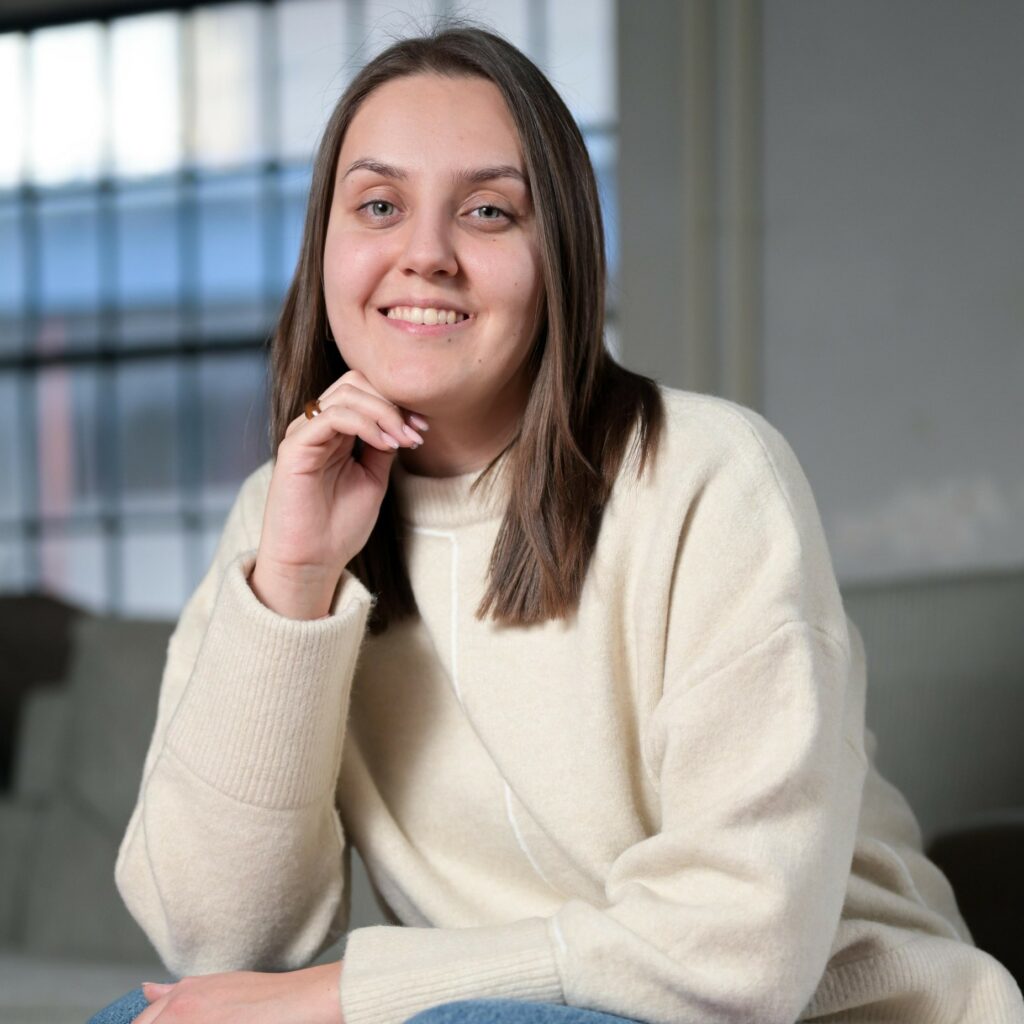

Iva Prgomet is the President of the Croatian Dyslipidaemia Patients Association, founded in 2023 in Zagreb. A fourth-year pharmacy and biochemistry student at the University of Zagreb, Iva was diagnosed with familial hypercholesterolaemia (FH) in 2023, the same year she helped establish the association.
Through her leadership, Iva has been actively involved in awareness campaigns across Croatia, including initiatives like "Do You Know Your Number?" and the "Run 4FH" events in 2023 and 2024. Her work focuses on raising awareness about dyslipidaemias and encouraging early diagnosis and proactive health management amongst the Croatian population.
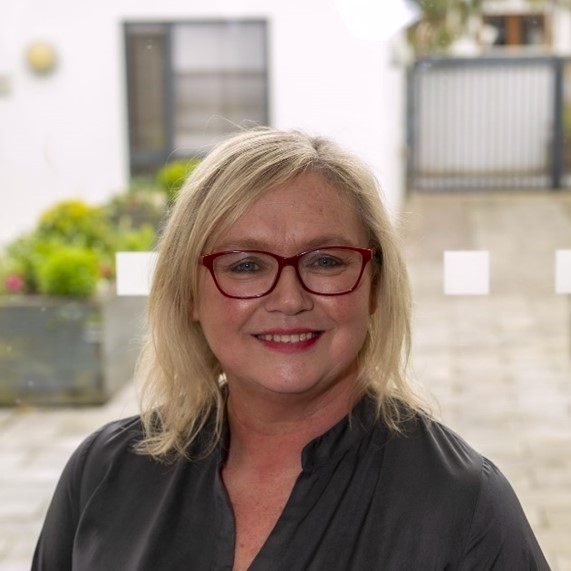

Annie Costelloe is Head of Patient Community Engagement and a member of the senior leadership team at Croí Heart & Stroke Charity. She has nearly 20 years of experience in cardiology-focused patient support and advocacy. Over her 12-year tenure with Croí, Annie has worked closely with patients, families, and communities to keep their needs and perspectives central to the healthcare journey. Working alongside Croí’s multidisciplinary health team, she has played a key role in developing award-winning health programmes, including initiatives in CVD risk assessment, management, community and patient support and education.
Annie co-founded Heart & Stroke Voice Ireland, the first patient-led cardiovascular alliance in Ireland, advocating for equitable, quality care for heart and stroke patients. Her work spans national awareness campaigns, including World Heart Day, World Stroke Day, ASCVD/FH Awareness, and Heart Valve Disease Awareness. In 2018 she coordinated Ireland ASPIRE, a research study carried out by Croí in collaboration with the NIPC (National Institute for Prevention and Cardiovascular Health) as part of the ESC EUROASPIRE study.
Through her leadership within Croí’s patient community and her role as a liaison to the Global Heart Hub and FH Europe Foundation, Annie bridges Irish patient advocacy from the national to the international stage, strengthening the patient voice and empowering patients and carers with the knowledge to drive meaningful change across borders.
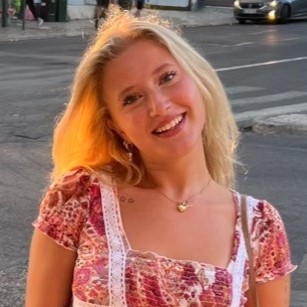

Lena Rosa Hanauer is a biology student at the University of Vienna and an active young patient ambassador for FH Europe. Diagnosed with heterozygous familial hypercholesterolaemia (FH) at the age of two, Lena began taking statins at eight and has successfully managed her condition ever since. Her advocacy is driven by personal family experiences: her father, who passed on the FH mutation, had a heart attack at 31, and her uncle has been undergoing apheresis for years. Both are now in stable treatment, just as Lena has maintained healthy LDL levels.
Passionate about raising awareness, Lena emphasises that with early diagnosis, regular check-ups, and daily medication, it’s entirely possible to live a fulfilling life with FH. She also enjoys traveling and immersing herself in different cultures, cuisines, and cities. Her message to others is clear: "Stay positive, get tested for FH!" Through her work as an ambassador, Lena is committed to spreading awareness and supporting projects aimed at improving FH diagnosis and care.
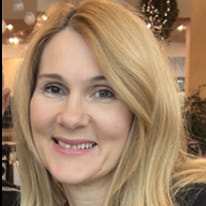

Sabina is mother of three girls. Two (age 14 and 16) were diagnosed with homozygous familial hypercholesterolaemia, which they inherited from their father. This was four years ago and since then there have been several blood checks and doctor visits. Sabina has learnt more on this condition (and are still learning), and the girls take their medicine which helps. Sabina says "we changed our lifestyle and met some wonderful people who support and help".
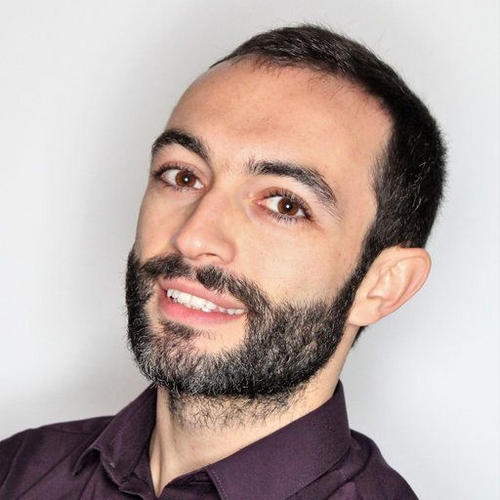

Antonio Gallo is Head of the Lipid Clinic and Cardiovascular Prevention Unit and Associate Professor at Sorbonne University, Pitié-Salpêtrière Hospital in Paris, France. After completing his training in Internal Medicine at Sapienza University of Rome, he obtained a PhD in Physiology, Physiopathology and Therapeutics at Sorbonne University. His clinical activity focuses on the diagnostic and therapeutic management of genetic dyslipidaemias, with a specific interest in homozygous familial hypercholesterolaemia (HoFH) and familial chylomicronaemia syndrome. His research interests include lipid metabolism, severe forms of genetic dyslipidaemias, residual risk in primary and secondary prevention, and imaging in atherosclerosis. His current projects focus on non-invasive coronary imaging and residual risk in FH. He is involved in several randomised, placebo-controlled trials on novel lipid-lowering treatments. He has authored or co-authored more than 50 peer-reviewed publications. He is a member of European Atherosclerosis Society (EAS), New French Atherosclerosis Society (NSFA), and is involved in an EAS-endorsed consortia HoFH International Clinical Collaboration (HICC) and FH Studies Collaboration (FHSC).
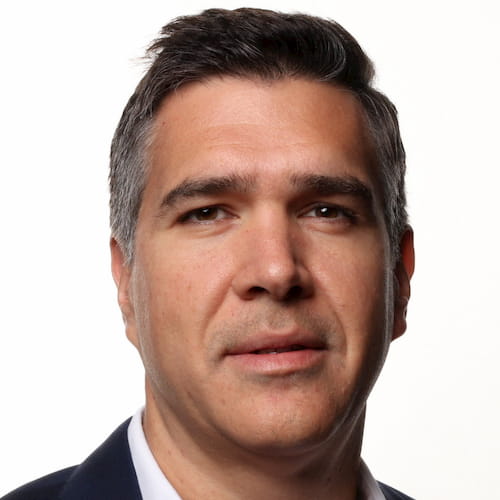
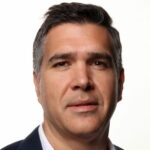
Prof. Thanassoulis is Director of Preventive and Genomic Cardiology at the MUHC and Professor of Medicine at McGill University.
His clinical interests are in cardiovascular prevention, dyslipidaemia (specifically lipoprotein[a]) and premature coronary artery disease. He currently runs the MUHC Family Heart Clinic for patients with premature CAD and their families with the goal of optimising their preventive care. His research interests are in the genetics of aortic valve stenosis where he leads an international consortium investigating the role of genomic variation in this disease. This work has culminated in the recently launched CAVS trial that will evaluate the role of targeted Lp(a) lowering in aortic stenosis. He is also working on developing new approaches to optimise cardiovascular prevention in young individuals. He is the co-chair of the 2021 Canadian Cardiovascular Society Dyslipidaemia Guideline Committee.
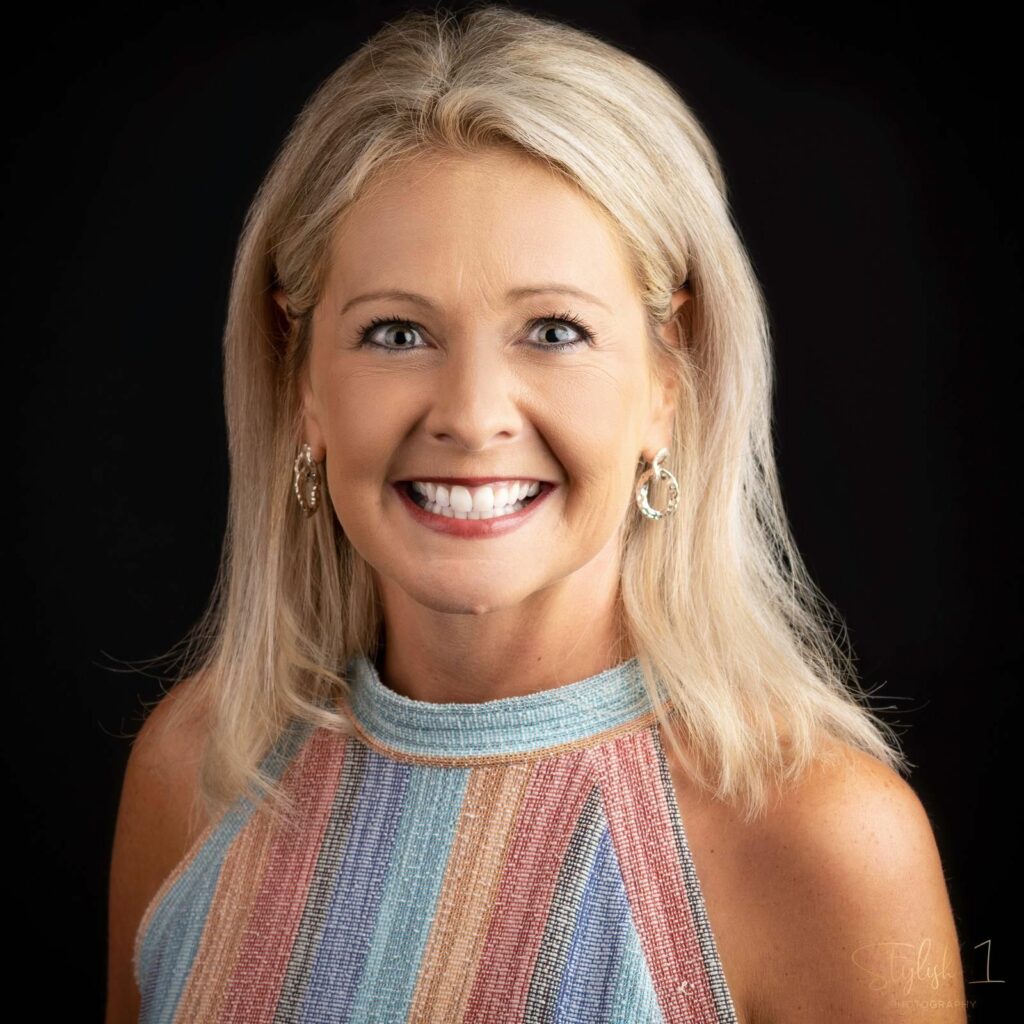

Michelle Watts is a Familial Hypercholesterolaemia (FH) and rare disease patient advocate, who was trained by the Family Heart Foundation in 2014, just after her daughter, Avery, was diagnosed with Homozygous FH (HoFH) at the age of six. Since that time, Michelle has advocated for Avery and other children and adults with rare diseases like HoFH, both nationally and internationally. In her rare disease advocacy, Michelle has attended rare disease conferences across the United States and in Europe, lobbied on Capitol Hill for advancements in the rare disease community, lectured at corporate pharmaceutical discussions, fundraised for FH and other rare disease causes, and built an online presence (“Avery’s Fight”) to raise awareness for HoFH and other rare diseases. Her goal is to share her family’s story to help others understand the rare disease patient and family experience.
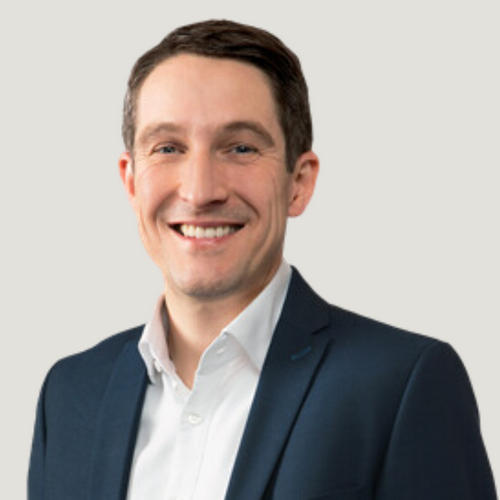

Dr Tobias Silberzahn is a trained biochemist and immunologist and worked in the life sciences and healthcare space at the consultancy McKinsey & Company for 15 years. There, Tobias worked as a Partner and led McKinsey’s Health Tech Service Line for several years. The focus areas of his work were healthcare innovation, health tech business-building and digital transformation of healthcare.
As part of his work, Tobias supported public health/public sector organisations, foundations/NGOs, health tech startups, investors and corporates in the pharmaceutical, medtech and health insurance space. From a geographic perspective, Tobias has mainly worked in Europe, Africa and Asia.
Tobias grew the Health Tech Network from a small, country-focused community to a global network of >1900 health tech CEOs/Founders, 400 investors and 400 corporate and public sector organisations. Tobias also co-published the "eHealth Monitor Germany", an annual book about the digitisation of the German health system in the Medical Scientific Publishing House Berlin.
In addition to being a core member of the International Lipoprotein(a) Task Force, Tobias is also a Patient Ambassador of FH Europe Foundation.
Tobias holds a PhD in immunology from King's College London and a diploma in biochemistry from Eberhard-Karls-Universität Tübingen (Germany).
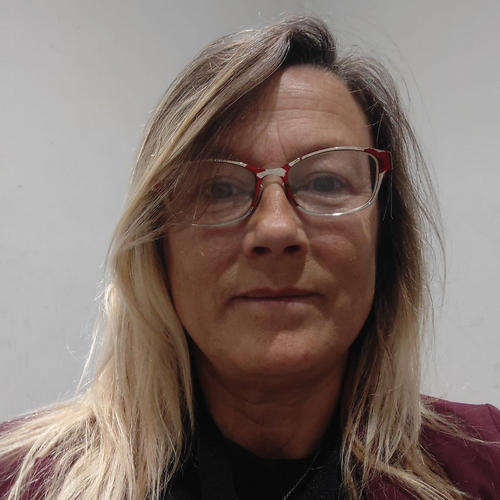

Michelle Sibley is a civil servant living in the UK. Her spare time is very full with five children and two grandchildren. She enjoys football, travel, and music.
Michelle was diagnosed with FCS a little under two years ago. Since then she has become a patient ambassador for FH Europe Foundation helping to advocate and raise awareness about this rare disease.
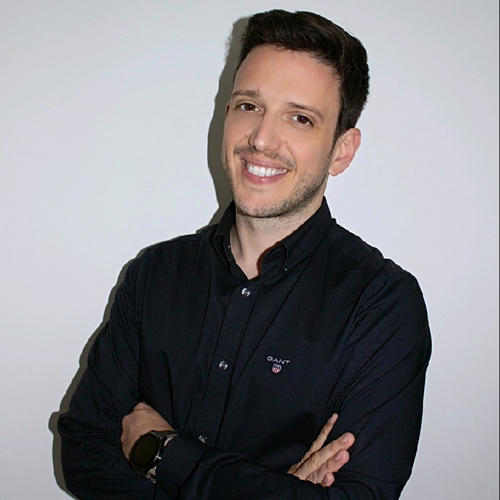

Prof. Fotios Barkas is an Assistant Professor of Internal Medicine at the University of Ioannina, Greece, with a specialised focus on cardiovascular disease prevention, particularly in the areas of lipids, obesity, and diabetes. He earned his medical degree at the University of Ioannina Medical School, followed by an MSc in Clinical Nutrition from Harokopio University in Athens and a PhD on cardiovascular disease risk factors in dyslipidaemia patients.
Since 2011, Prof. Barkas has contributed to clinical and research work at the University Hospital of Ioannina’s Outpatient Lipid & Obesity Clinic. He has also been involved in over 10 multicentre clinical trials addressing dyslipidaemias, obesity, and diabetes. In 2022, he joined the Imperial Centre for Cardiovascular Disease Prevention at Imperial College London, expanding his research collaborations.
An accomplished researcher, Prof. Barkas has published extensively and presented at numerous national and international conferences. He is a participant in the European Atherosclerosis Society Young Fellows Programme and a board member of the Hellenic Atherosclerosis Society.
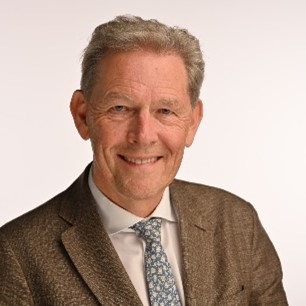

Albert Wiegman, Amsterdam, became a paediatrician and member of staff at the Amsterdam University Medical Center in 1991. In 1993, he completed his sub-specialisation in paediatric cardiology, and the Paediatric-Lipid Department came under his care. He started detection and treatment of children with homozygous and heterozygous familial hypercholesterolaemia and other dyslipidaemias in the Netherlands. In 2020, he was appointed Associate Professor and Principal Investigator.
In 30 years, over 4000 children with inherited dyslipidaemias visited his ward. He co-authored around 150 peer-reviewed papers in this field. Since 2024, he was appointed trustee of the Familial Hyperlipidemias Europe Foundation (FH Europe Foundation).
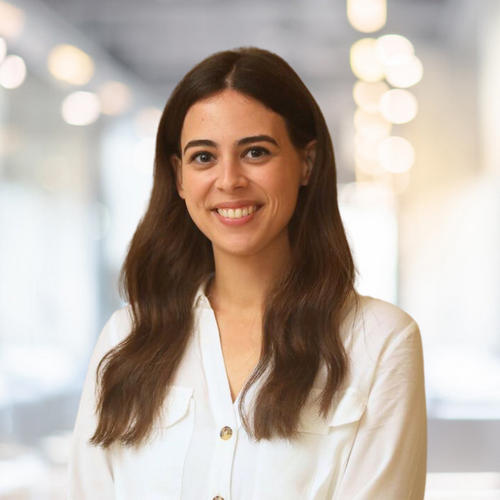

Joanna Ten-Kate is Global Heart Hub’s Patient Community Development Lead, where she supports a global network of CVD patient organisations and advocates, facilitating their growth and engagement through key programmes, events, and communications. While currently based in Galway, Ireland, Joanna is originally from the U.S. She has a background in policy research and development, having worked for federal and state agencies in the U.S., and in organising for non-profit advocacy. She holds an MSc in Public Policy and Administration from the London School of Economics.
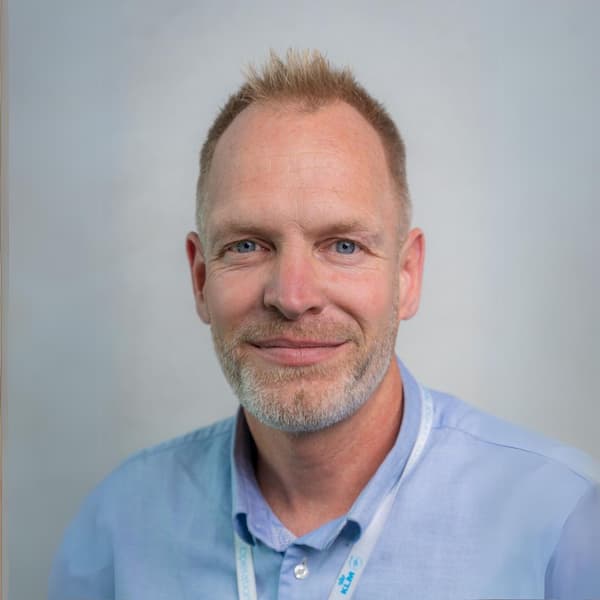

Marc Rijken is from The Netherlands, is 50 years old, happily married to his wife Manon and
together they have three daughters (age 21, 19 and 16). Marc works for the Royal Dutch
Airline as a Learning & Talent manager in the centre of expertise for L&D.
Marc is also a person living with elevated Lp(a) and has suffered from several incidents since 2014 (2 heart attacks, 1 open heart surgery, 7 bypasses, 1 stent). He was diagnosed with elevated Lp(a) at the age of 46, over 4 years after his second heart attack (in 2017).
In 2022 Marc became a patient ambassador, actively working to raise awareness about elevated Lp(a) including advocacy work at the European Parliament in Strasbourg.


Emma joined FH Europe Foundation as a Community Engagement Manager in early 2023. She also has first-hand experience with living with inherited lipid disorders, having been diagnosed with HeFH and high levels of Lp(a) in 2016, 3 years after losing her Mum to a heart attack, and then losing her Dad to CVD that same year.
Emma has a very healthy and active lifestyle. She trains 4 hours a week and competes in regional and national adult gymnastics competitions, sails, and has worked as a chef on different superyachts for 12 years, even crossing the Atlantic. She was also on the GB Aerial ski team. In her spare time, she helps others as a qualified personal trainer, hypopressives instructor, and nutritionist. Prior to that, Emma worked in a pan-European role as an Account Manager for GSK and Eurostar. Over the recent years, she also has been volunteering with HEART UK and most recently with FH Europe Foundation as a Patient Ambassador.


Teevi Poobus is a mother and dedicated advocate for her daughter Elisete, who was diagnosed with Familial Chylomicronaemia Syndrome (FCS) at a young age. When the diagnosis first came, Teevi and her family faced significant challenges, adapting to strict dietary restrictions that limit Elisete to a mere 5 grams of fat per day—even healthy fats like nuts, avocado, and olive oil.
In order to better understand how to manage FCS and ensure her daughter’s good health, Teevi studied nutritional therapy. She is now making an attempt to find other dyslipidaemia patients in Estonia to exchange information.
In her heartfelt presentations, Teevi has expressed gratitude for the healthcare professionals who have supported her family and described her journey as a mother facing FCS, saying, "although it is Elisete with the diagnosis, it feels like it is my own too." Without an FCS organisation in Estonia, Teevi and her family navigated government systems alone in search of help.
In 2023, Teevi connected with FH Europe Foundation and found a supportive international network. She and Elisete attended the Foundation’s annual conference in Amsterdam, where they met other FCS patients, and Elisete, the youngest in attendance, stole the show with her joyful spirit.
Through her advocacy, Teevi is now working to gain formal recognition for FCS in Estonia, pushing for greater support for those impacted by this rare condition.
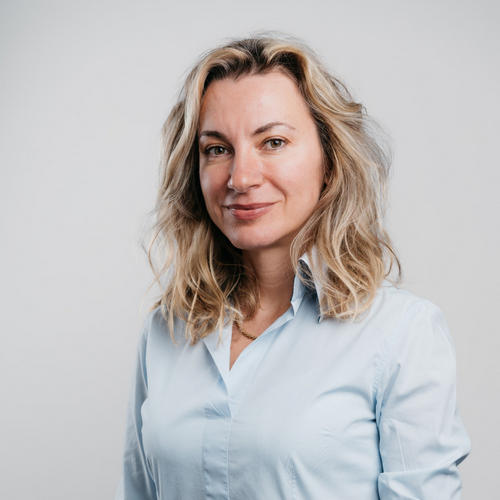

Borjana Pervan is a journalist, strategist, and public affairs leader with a strong commitment to uncovering truths and fostering collaboration. A former broadcast and print reporter in Bulgaria, she gained recognition for exposing a significant international human trafficking ring. Before her role at the World Heart Federation, she led global communications teams for two international organisations in Switzerland. With extensive experience in health, environmental issues, human rights, and sustainable practices, Borjana connects people and builds trust through strategic coalitions. In her current position, she empowers the global cardiovascular community to advocate for change.
Quote:
“We all work towards the same goal, so why don’t we come together? This year’s FH Europe Foundation meeting is the perfect venue to cut through the noise and concentrate on what truly matters: tangible outcomes for heart health. I am joining to share our breakthroughs and setbacks, all in the spirit of challenging ourselves to think and act boldly, inspiring real change.”
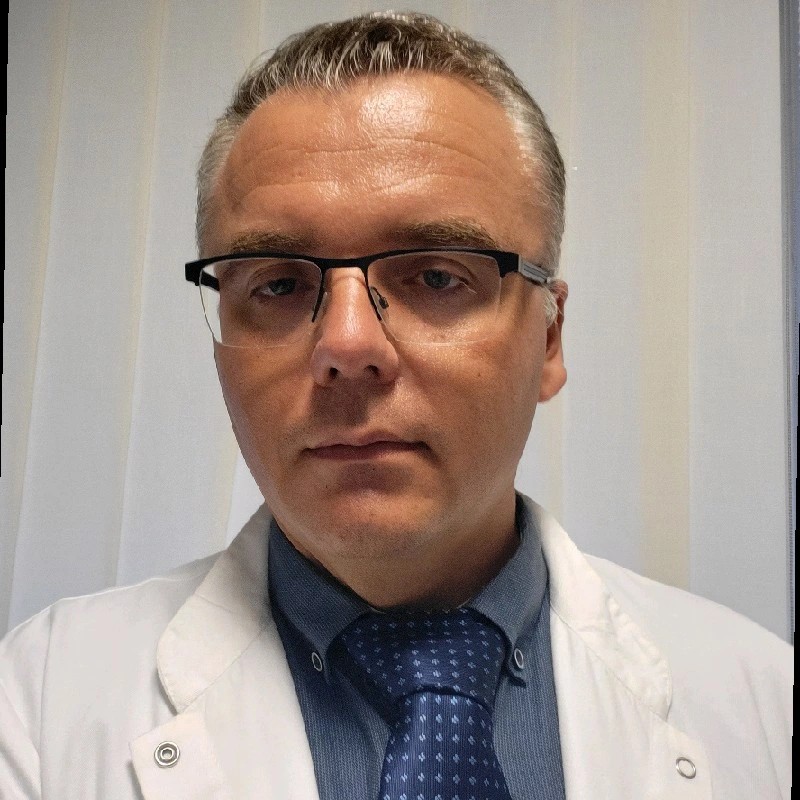
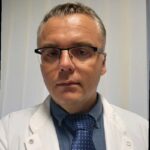
Professor Ivan Pećin is a specialist in internal medicine with sub-specialisations in endocrinology and diabetology. He graduated from the Zagreb School of Medicine in 2003 and later earned his M.Sc. in biology and PhD in biomedicine. His research focuses on dyslipidaemias, diabetes, and rare metabolic diseases. He is involved in national and international research programmes on arterial hypertension and dyslipidaemias. A recipient of multiple awards, he leads national initiatives for familial hypercholesterolaemia screening and is actively engaged in several professional societies, including serving as the vice president of the Croatian Atherosclerosis Society.
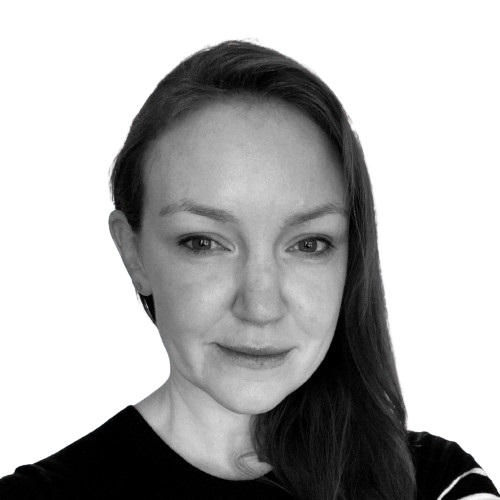

Marie-Therese O’Donohue is a Lp(a) patient ambassador who recently discovered her elevated levels at the age of 38. Originally from Ireland, she resides in Switzerland and serves as the EMEA eCommerce Director at Bayer Consumer Health. She holds a Master of Science in International Marketing Practice from UCD Michael Smurfit School of Business. In addition to her professional pursuits, Marie-Therese is passionate about Irish dancing and female entrepreneurship, having actively supported women entrepreneurs through the Cherie Blair Foundation for Women in Business.
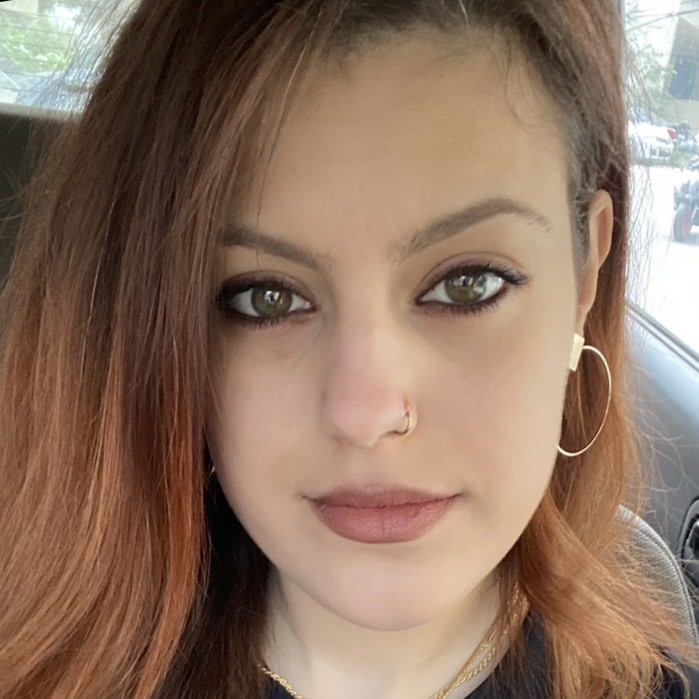

Maria Nassif is a 31-year-old advocate for Familial Hypercholesterolaemia (FH) awareness, living in France. Diagnosed with Homozygous Familial Hypercholesterolemia (HoFH) at just three years old after developing visible xanthomas, Maria has managed high LDL cholesterol levels her entire life. Despite early treatments, including daily medications and regular LDL apheresis, her cholesterol remained critically elevated, impacting her health and self-confidence as a child.
At 24, Maria underwent life-saving open-heart surgery due to severe coronary blockages. She later moved to France, where advanced medical treatments led to a significant improvement in her health, reducing her LDL levels and shrinking the xanthomas. Now, Maria carefully manages her health through medication, diet, and lifestyle changes like yoga, which helps maintain her physical and mental well-being.
A passionate advocate, Maria raises awareness about the “silent pain” of living with HoFH, emphasizing the importance of early diagnosis and treatment for those affected by this rare condition.
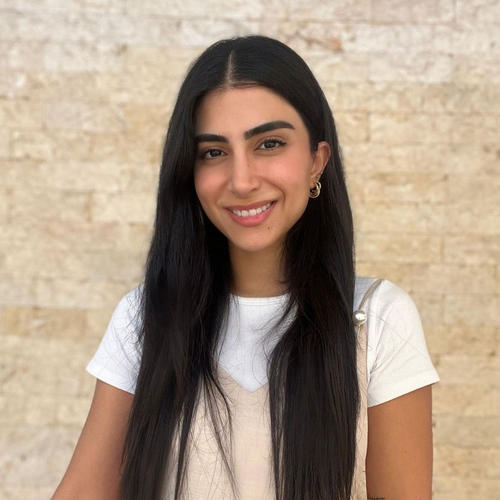

Chyrel Lichaa is a dedicated advocate for individuals living with Homozygous Familial Hypercholesterolaemia (HoFH). As a HoFH Patient Ambassador, she actively works to raise awareness about this rare genetic disorder, which causes extremely high levels of LDL cholesterol from birth. Her personal journey with HoFH has made her a passionate spokesperson, emphasising the importance of early diagnosis, effective treatment, and emotional well-being for patients. Chyrel also plays a key role in organising the HoFH Awareness Day launched on May 4th, 2024.
Chyrel's story was featured in the World Heart Federation white paper about cholesterol, highlighting her contributions and the challenges faced by HoFH patients. Additionally, she was a speaker at the World Heart Federation Rare Disease Forum in Geneva in May 2023, where she shared her experiences and advocated for better care and awareness for those living with this rare condition.
Her firsthand experience with HoFH empowers her to judge the competition with profound insight and empathy.
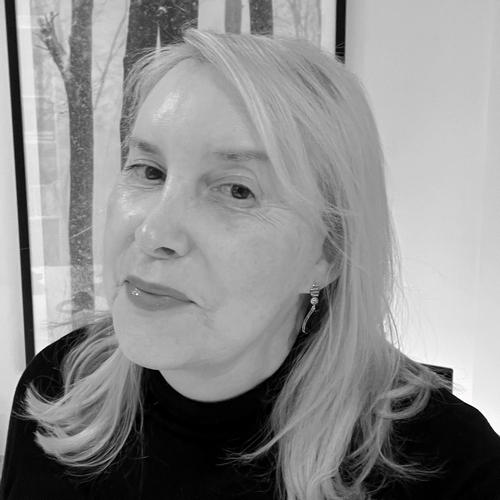

Prof. Joanna Lane is the Chairperson of FH Europe Foundation and Founder of Stichting HCN, with over 40 years of experience at the intersection of policy, research, and practice. She serves as a Professor at the University of South-Eastern Norway and Co-Chair of the Advisory Board for the European Partnership for Transforming Health and Care Systems. Prof. Lane has worked extensively with the NHS, EU-funded projects, and international health organisations, including WHO, focusing on innovative interventions in oncology and cardiovascular disease. Her academic roles include Visiting, Special, and Honorary Professorships, and she has served as a mentor, evaluator, and EU adviser.
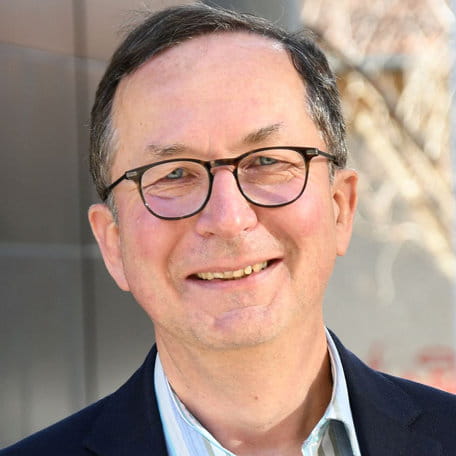

Florian Kronenberg received his MD from the University of Innsbruck, Austria. After his training in Medical Genetics in Gerd Utermann's lab, he worked with Roger R. Williams and Steve Hunt at the University of Utah, USA. Later, he headed the Research Unit "Genetic Epidemiology" at the Helmholtz-Center Munich. In 2004, he became full professor and head of the Institute of Genetic Epidemiology at the Medical University of Innsbruck. He is a Member of the Academia Europaea.
His main research interests are genetic and clinical epidemiological studies on lipoprotein(a) as one of the most important genetic risk factors for cardiovascular disease. His team has probably the largest collection of samples with more than 40.000 individuals with in depth characterisation of the LPA gene including data from Western blot analyses.
He is Co-Editor of "Atherosclerosis" and served as workgroup member on several guideline and consensus initiatives (K/DOQI, KDIGO and EAS). He chaired the most recent EAS Consensus Statement on Lp(a) (together with Samia Mora and Erik Stroes).
Florian Kronenberg has published roughly 500 papers including 400 original papers and about 90 review articles, editorials and book chapters. He has an H-index of 96 (Scopus) and 112 (Google Scholars) with roughly 51,000 citations.
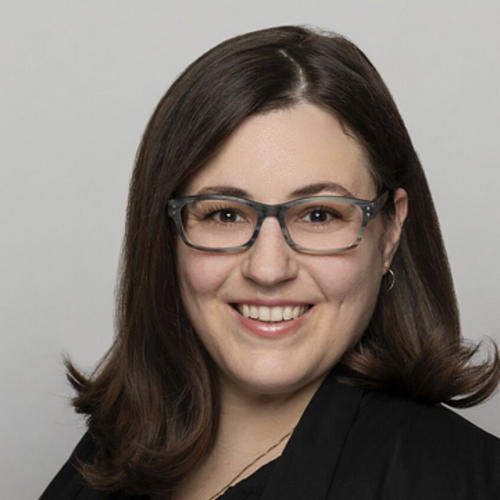

Verena Kozmann is a PhD student in medical anthropology at the University of Vienna. Her PhD project includes ethnographic research on hymenoplasty, applied medical ethics and immigrants women’s health in the Greater Toronto Area. Broader research interests include medical anthropology, anthropology of the body, medicalisation and medical technologies.
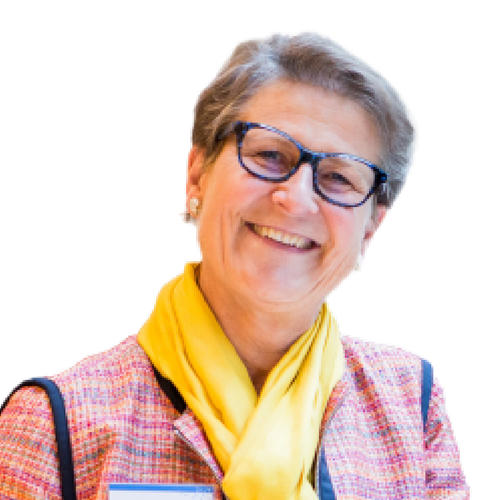
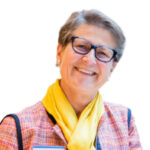
Physician, specialising in General Medicine, Clinical Pharmacology and Pharmaceutical Medicine with over 30 years of experience in different senior medical, operational and managerial functions in pharmaceutical industry, CROs and clinical trial sites with a focus on clinical trial design and management, ethical and regulatory aspects.
Since January 2003 she has had her own pharmaceutical development and site management support consulting company.
Dr Klingmann is Chairman of the Board of the European Forum for Good Clinical Practice (EFGCP). Her broad professional background as a physician with experience in patient care, clinical development, site management, regulatory affairs, clinical research ethics, and patient engagement enables Dr Klingmann to bridge the gaps between the interests and skills of all different stakeholders in medicines development with the aim to develop new patient-relevant treatments more efficiently. Having been a founding member of EUPATI, the European Patients Academy on Therapeutic Innovation, she has been and is working on numerous activities to enable and facilitate patient involvement in medicines development in practical terms through patient and sponsor education and guidance development.
Dr Klingmann is currently also Vice-President of PharmaTrain Federation, the not-for-profit organisation focussing on global standardisation and improvement of post-graduate training in medicines development sciences and President-Elect of EUFEMED, the European Federation of Exploratory Medicines. She also teaches different clinical research and regulatory affairs topics in diploma and master courses at the University of Bonn, Germany, University of Basel, Switzerland, and the Université Libre de Bruxelles, Belgium.


Aedan Kaal, a dedicated, and currently (2024) 2nd year, medical student at Vrije Universiteit Amsterdam (VU), has aspired to become a doctor since the age of six. Diagnosed early with elevated Lp(a) and ADHD, Aedan has managed both conditions alongside a deep understanding of lipid health. Growing up in a family familiar with genetic lipid disorders—his father with heterozygous FH and his mother with elevated Lp(a)—he received invaluable guidance on managing his own lipid condition by his doctors and his family.
Aedan is an active member of the European Patients’ Forum (EPF) Youth Group, where he works on initiatives to support young patients’ voices and ever growing role in society, research, and the medical field. He also serves as a Lp(a) patient ambassador within the FH Europe Foundation, contributing his insights both as a future doctor and as a patient advocate.
Aedan’s professional aspirations include becoming an internist, where he aims to offer compassionate and informed care to any and all that walk in his future office. He also strives to be a guiding voice for patients with chronic (lipid) conditions, focusing on prevention and management for these conditions, as well as advocating for accessible, effective care to reduce risks and critical events like heart attacks and medication gaps.
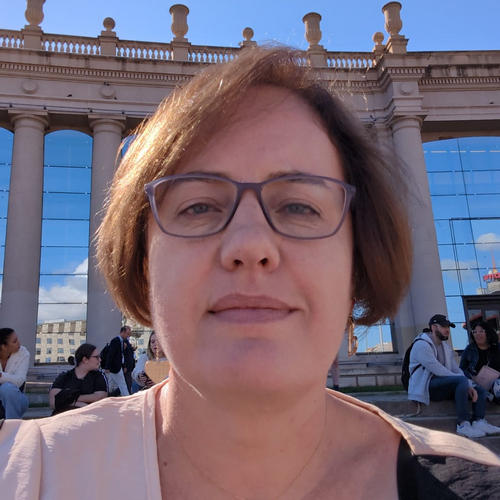

Elsie Evans is the Ambassador Programme Manager at the FH Europe Foundation. With over 20 years of experience in education and special education with a specific focus in neurodiversity as well as social and emotional difficulties, she now applies her skills to educate patient advocates, empowering their voices, while supporting campaigns in raising awareness of inherited lipid conditions. Elsie has collaborated with several successful awareness campaigns, working with healthcare professionals, patient ambassadors, and a variety of stakeholders, as well as community leaders to enhance public understanding of the conditions and the impact on Quality of Life. Living with HoFH, she balances her love of travel with her commitment to making a positive impact for those navigating these challenging conditions.
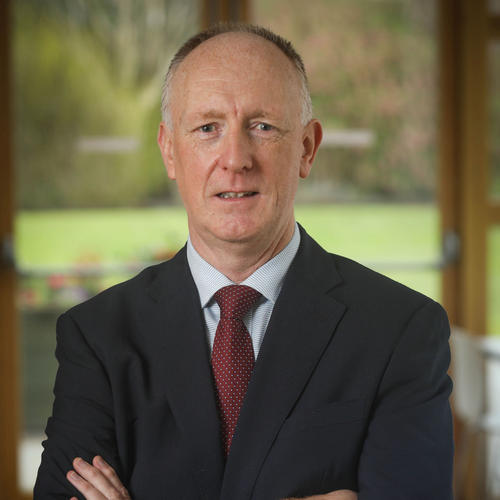

Neil Johnson is the founder and Executive Director of the Global Heart Hub, the first international alliance of heart patient organisations. With over 32 years of experience in cardiovascular health, he previously served as Chief Executive of Croí, the Irish Heart & Stroke organisation, from 1992 to 2023. Neil initiated the establishment of the Irish National Institute for Prevention and Cardiovascular Health and has led numerous initiatives in prevention, education, and patient advocacy. He holds a first-class honours master’s degree in psychology and is an Honorary Clinical Fellow at the University of Galway. Under his leadership, the Global Heart Hub has grown to 130 affiliates across 44 countries, emphasising patient engagement in healthcare.
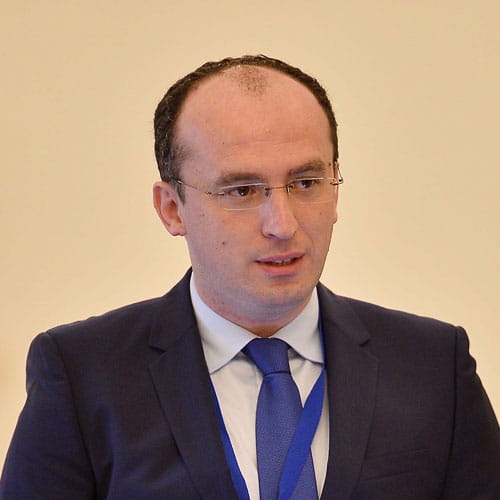
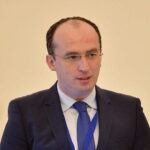
Marius Geantă is President and Co-Founder of the Center for Innovation in Medicine, a research, innovation and health policy oriented civil society organisation.
Dr. Marius Geantӑ is also:
Marius is a pioneer in the field of personalised medicine in Europe and is involved in some pan-European innovative healthcare projects, such as Information Technology: The Future of Cancer Treatment, DigiTwins Consortium, Public Health Genomics Network, PECAN, Building Blocks for Personalised Medicine, ReThinkHPVaccination, National Cancer Competency Center, Uncan EU initiative and others.
As President of the Centre for Innovation in Medicine, Marius is the coordinator of “State of Innovation in Medicine” Annual Report and the organiser of the high-level events - Science meets Politicians (in partnership with Romanian Parliament), and Personalised Medicine Conference (two editions in partnership with Romanian Presidential Administration).
He has more than 15 years of experience and expertise in the field of health and science communication as editor in chief and publisher of many medical journals and health communication platforms. As expert in the field of health innovation, Dr. Marius Geantă is usually invited by the mainstream media (TV, radio, websites) to discuss topics of interest - he has more than 1000 interviews in the context of Covid-19 pandemic.
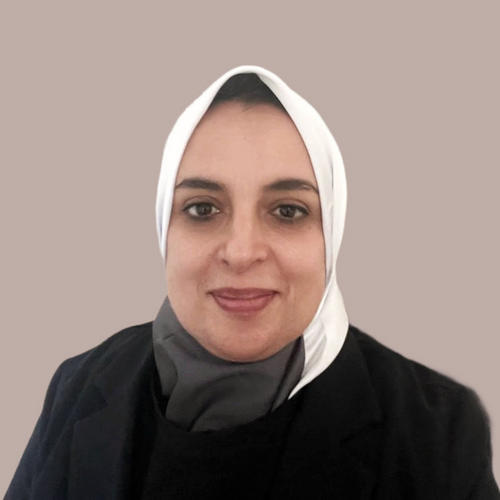
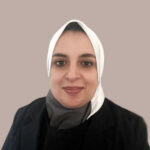
Prof. Elshorbagy earned her medical degree from the University of Alexandria, Egypt, where she taught medical physiology for 10 years. She completed a PhD in Physiology at the University of Oxford in 2010, subsequently securing several grants to research how obesity and nutrition link to diabetes and heart disease across populations, resulting in more than 50 publications. Since joining Imperial College, Prof. Elshorbagy has focused on cardiovascular disease epidemiology in patients with FH, drawing on the extensive and global FHSC registry. Her work has led to key findings and publications, which she looks forward to discussing during this debate.
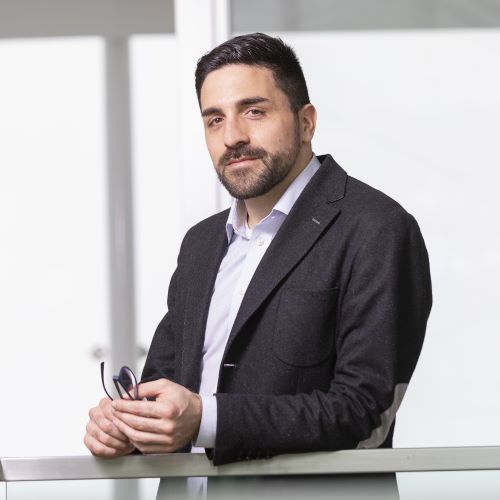

Gianni D´Errico is Head of the Project Management Office at Toscana Life Sciences, the main regional player in the biomedical field and policy support for Tuscany Regional Government.
He obtained his degree cum laude in International Relations at Federico II University in Napoli, with a major in international economics. He is also EMBA laureate at Bologna Business School (University of Bologna). He obtained his Post Graduate master’s degree in Project Management in Rome and a certification in Intellectual Property Management at University of Bonn (DE).
He is the coordinator/partner of the following European projects: European Partnership for Personalised Medicine, Region4PerMed, Sino-EuPerMed, BornToGetThere, EraPerMed, ICPerMed; Transcan3, AI4Diag, MammoScreen
His scientific publications are:
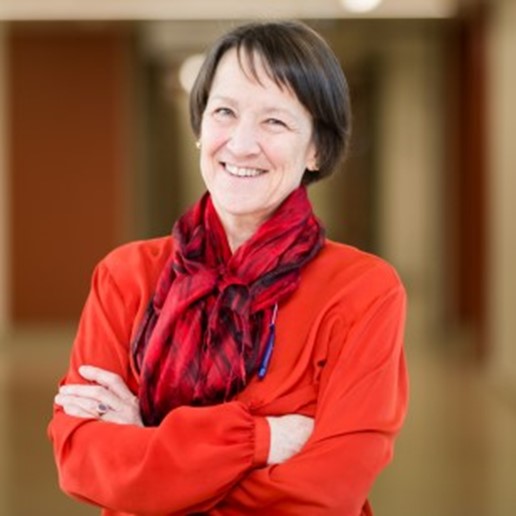

After her MD PhD (1986, Prof Bruining) in Rotterdam, Netherlands, Prof. de Beaufort completed her paediatric training in the Netherlands, Luxembourg and France (1993), followed in 1999 by paediatric endocrinology-diabetology. In 1988 she completed a University DU in Public Health in Nancy, France and participated in the EURODIAB diabetes registry. She participated in the creation of the multidisciplinary team (DECCP) for the care of children and adolescents with diabetes in Luxembourg, a dynamic and international team.
They have been recognised as Centre of Reference for Paediatric Diabetes as well as member of the ERN (European Reference Network) for rare diabetes. She received several research grants from the EU, interregional and international funding structures. Research topics of the team include epidemiology, technology in diabetes care, and the pathogenesis of type 1 diabetes.
She published more than 120 publications in peer reviewed journals and several chapters in books.
She was ISPAD Secretary General for the period 2012-2016. During this time, she was able to meet many colleagues and patients around the globe who were working on improving access to care and quality of care for young people with diabetes. She became ISPAD President in 2020.
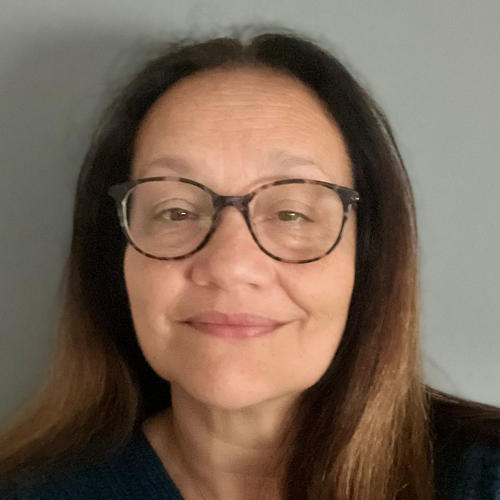

Ms. Helga Davidson is a Patient Ambassador for FH Europe Foundation and a member of Action FCS. Diagnosed with Familial Chylomicronemia Syndrome (FCS) six years ago, after battling extremely high triglycerides and experiencing a severe pancreatic attack, she turned her focus toward raising awareness of this rare condition. With a background in her family’s engineering business and a partial degree in Nutrition, Helga brings unique insights from her lived experience with FCS, including the daily challenges, psychosocial impacts, and the need for better-informed healthcare professionals.
"Raising awareness of FCS has been my passion since my diagnosis. That's why I'm truly delighted to have the opportunity to speak at the FH Europe Foundation Annual Meeting in Vienna."
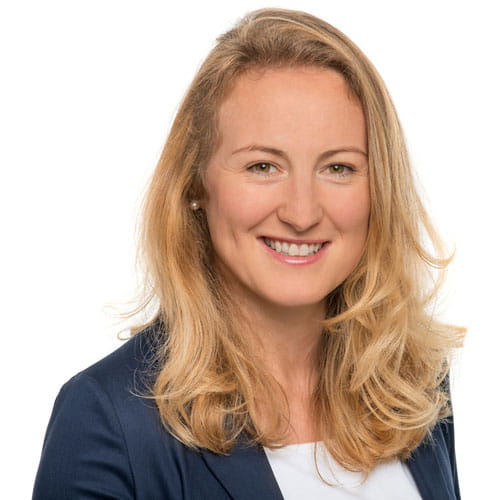

Magdalena Daccord, Chief Executive of FH Europe, joined the organisation in November of 2019, one month before the COVID outbreak. Since then, she grew the Network in size from 25 to 34 organisations, expanded its scope from FH to wider inherited lipid conditions with an equal focus on rare and severe hyperlipidaemias like HoFH and FCS, and since 2021 successfully included Lp(a) into the organisation’s scope. She also established international Scientific and Policy Advisory Committees, and Industry Roundtable. In the past 12 months, she set up Stichting FH Europe in the Netherlands, in order to transform and transition the charity into an EU registered non-profit. By Q1 of 2023, FH Europe Foundation applied for 3 EU grants, leading one consortium and being part of 2 other ones as part of EU4Health, Erasmus and Horizon. Since her joining, FH Europe has become a member of the WHF, EPF, EURORDIS and is a partner of the EACH alliance. FH Europe Foundation also collaborates closely with EAS, IAS, EAS FHSC as well as EAPC. She has co-authored several publications in the field of inherited lipid conditions.
Prior to joining FH Europe, Magdalena was engaged with DIA (Drug Information Association) as Head of Operations for EMEA, where she led a team of 7 and ran a portfolio of over 70 educational products for Regulatory, PV and Market Access for Pharma and MedTech, incl. the DIA Annual Meeting, with the participation of FDA, EMA, etc. She was also responsible for Patient Engagement incl. collaboration with EUPATI and EURORDIS.
Before joining the non-profit sector, Magdalena was involved in biotech and pharma industry working in various roles in rare diseases and orphan drugs.
Her professional goal is to contribute to health care redesign with a greater focus on personalised prevention, health promotion and precision medicines.
Magdalena is of Polish origin, living in Switzerland. Over the years, she volunteered with organizations furthering women’s professional and personal development, health, gender and sex equality in health (HBA, Women’s Brain Project, Thrive with Mentoring).
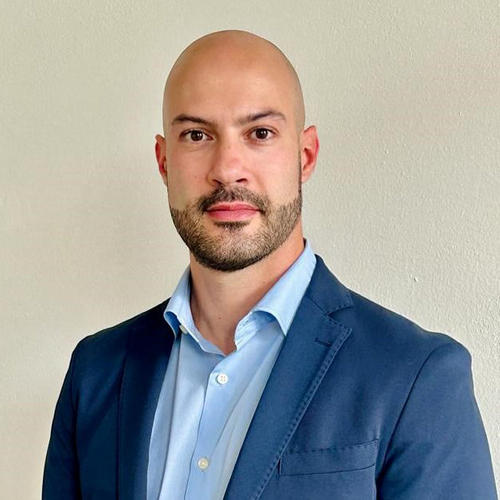
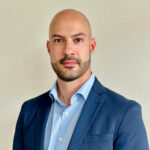
Dr. Matteo Gentili graduated with full honors in Pharmaceutical Chemistry from the University of Florence, where he also earned his PhD in Pharmaceutical Sciences. He began his career in the R&D department at Giotto Biotech, serving as Head of the Organic Synthesis Department and participating in several national and international research projects as a principal investigator.
He later worked as a Project Manager at Pharma Education Center, overseeing training and education projects for the pharmaceutical industry and leading a team of five. In May 2023, he joined Fondazione Toscana Life Sciences as a Project Coordinator, focusing on personalised medicine and cancer prevention and treatment initiatives, including leading the EP PerMed WP5 and participating in projects like MammoScreen, IMPACT-AML, and Transcan-3.
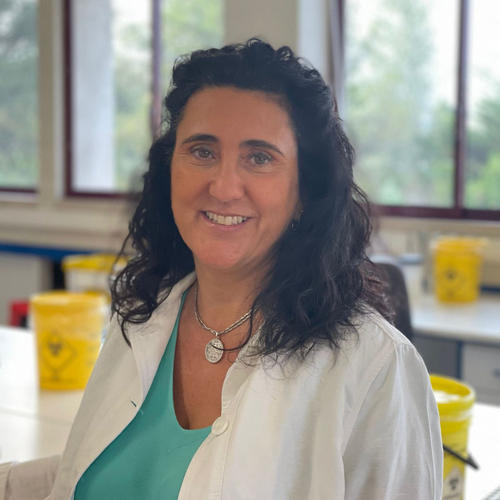
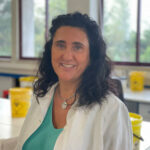
Mafalda Bourbon is a Principal Researcher at the National Institute of Health (INSA) in Portugal and a researcher and invited professor at the Biosystems & Integrative Sciences Institute (BioISI), Faculty of Sciences, University of Lisbon. She completed her PhD in Clinical Sciences in 2006 at the Imperial College Faculty of Medicine, Hammersmith Campus. She is the Chair of the Familial Hypercholesterolaemia Variant Curation Expert Panel at the Clinical Genome Resource and the National Lead Investigator for two international FH registries: the FH Studies Collaboration and the International Children FH Registry.
She is also a member of the Public Health Group at FH Europe Foundation, a board member of the Iberoamerican FH Network, and part of the Scientific Committee of the Portuguese Atherosclerosis Society. Her primary research field is genetic dyslipidaemia, with a special focus on Familial Hypercholesterolaemia (FH). Her laboratory develops and applies methods to identify, functionally characterise, and interpret variants found in patients with a clinical diagnosis of FH and other dyslipidaemias.
Mafalda also works in cardiovascular prevention and risk, leading population-based studies on genetic dyslipidaemias and monogenic diabetes, providing genetic diagnoses for these disorders.
Mafalda Bourbon is the founder and coordinator of the Portuguese Familial Hypercholesterolaemia Study (1999-present), the Rare Dyslipidaemia Study (2012-present), the Molecular Study of Monogenic Diabetes (2015-present), and the e_COR Study on cardiovascular risk factors in the Portuguese population (2012-2019). She is currently working on a personalised medicine model for FH and is the project leader of the PerMedFH consortium, “Personalising Diagnosis and Treatment for Familial Hypercholesterolaemia Patients.” Another focus of her research is the genetic aetiology behind the FH phenotype. She has published more than 70 articles in international scientific journals and contributed to three book chapters.
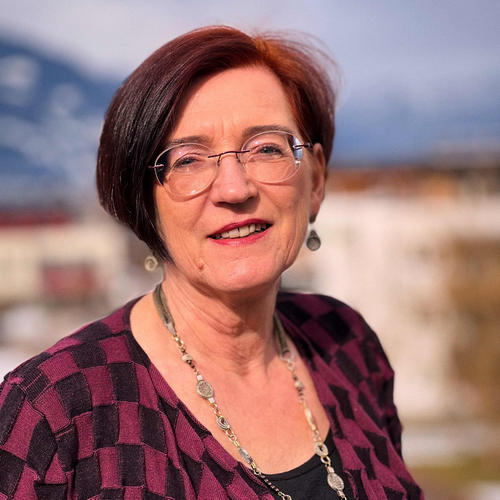
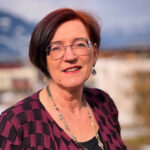
Anna Andrea Böhm has been Chairwoman of FHchol Austria since 2019, following her involvement with the organization starting in 2012. She is deeply committed to raising awareness about familial hypercholesterolaemia (FH) and advocates for early child screening for FH and Lp(a) in Austria. Anna has long been aware of her own high cholesterol levels, influenced by her family's health history, and is passionate about improving FH diagnosis and treatment.
She is also a member of the Cholesterin Allianz Österreich and is excited to welcome attendees to the FH Europe Annual Network Meeting 2024 in Vienna.
"I am very happy to welcome the FH Europe Foundation Annual Network Meeting 2024 in Vienna and I am looking forward to many inspiring discussions and meetings!"
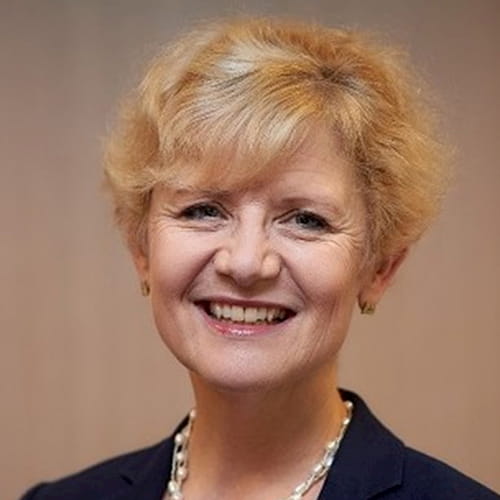
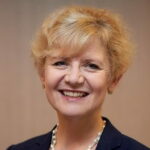
Nicola Bedlington was the first Executive Director and Secretary General of the European Patients Forum from 2006 to 2019. Nicola was also the founding Director of the European Disability Forum, (1996 to 1999). Prior to this, she headed the NGO unit within HELIOS, a European Commission Action Programme promoting equal opportunities for disabled people (1991-1996). From 2004 to 2006, she led the Environment and Schools Initiatives Secretariat (ENSI), an international government-based network set up by OECD focussing on Education for Sustainable Development.
Nicola is based in Vienna, and has recently set up Millwater Partners, a consultancy company focused on health, engagement and sustainability. In this role, she has undertaken several projects in the field of cardiovascular health, including authoring the European Action Plan on Cardiovascular Health. She is also advising a number of global initiatives focused on meaningful patient engagement (Patient Focused Medicines Development (PFMD), From Testing to Targeted Treatment (FT3) and the Global Centre for Person -Centred Value Based Healthcare.
Nicola is the Senior Policy Advisor to the FH Europe Foundation, and supported the recent Campaign on FH Paediatric Screening, authoring the Prague Declaration on FH Paediatric Screening. She is the project lead for the Lp(a) preparatory phase.
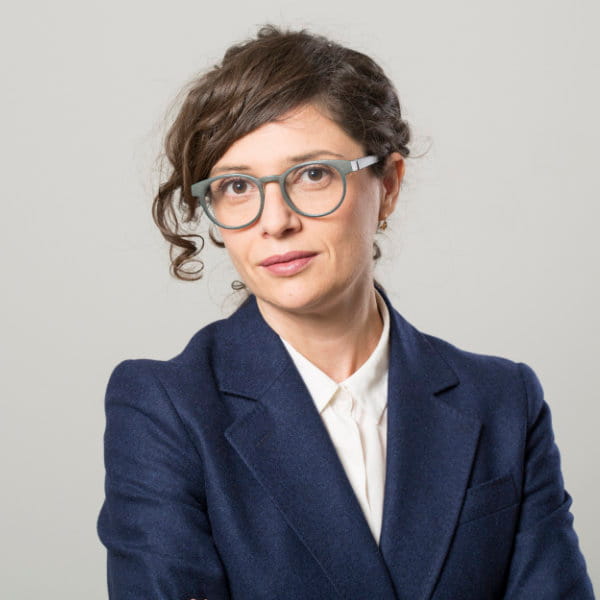

Zanfina Ademi is a Professor of Health Economics and leads the Health Economics and Policy Evaluation Research group at the Faculty of Pharmacy and Pharmaceutical Sciences, Monash University. Their research vision is to improve health and welfare and reduce inequities in society by using high-quality health economic evidence for decision-making. Prof. Ademi is currently a member of the Economics Sub Committee of the Pharmaceutical Benefits Advisory Committee which assesses clinical and economic evaluations of medicines submitted for listing on the Pharmaceutical Benefits Scheme (PBS). Their research has impacted policy decision-making processes and attracted $44.6M in funding. Prof. Ademi has published >170 original publications, including >33,000 citations (FWCI of 26.66); 50% published in the top 1% most viewed worldwide, 1/2 as first, co-first, and senior author. Prof Ademi’s work is published in top-tier journals, BMJ, NEJM, Lancet, JAMA Cardiology, JAMA Paediatrics, European Heart Journal, Neurology, Diabetes Care, PharmacoEconomics and Value in Health. Their research has led to changes in many clinical guidelines and policies: lipid management; listing of services on the Medical Benefits Scheme [MBS]); heart failure therapies (listing by PBS and Federal Office of Public Health [FOPH], Switzerland); cardiovascular disease PBS listing; kidney disease [KDIGO] guidelines; listing of new hyperkalaemia drug to FOPH, Sweden, Switzerland, Scotland and UK; Lifestyle interventions; listing of herpes zoster vaccine [FOPH] and; evidence of low-value care to disinvest combination therapy for Alzheimer’s disease.
Her work in familial hypercholesterolaemia provided evidence of the cost-effectiveness of family genetic testing followed by treatment for familial hypercholesterolaemia in Australia. This model supported a successful Medical Services Advisory Committee application recommending genetic screening as a reimbursed item. Moreover, their work on genetic testing in children provided evidence for the first time that testing children and treating them early in life was a cost-saving over their lifetime.
FHEF is pleased to invite one (1) person from each Network Member organisation, who will officially represent the respective patient organization, and whose participation costs will be covered by FH Europe Foundation. This includes:
Travel costs will be reimbursed to a maximum amount of 500 EUR. For participants coming from outside of Europe, additional arrangements can be made. For detailed terms and conditions please refer to the FH Europe Foundation Annual Network Meeting travel and reimbursement policy.
For any additional information about the registration and travel reimbursement, please refer to our Registration, travel and reimbursement policy.
Members of the Network wishing to be part of the Vienna event but unable to participate in person are welcome to join online. There are no limitations on space. Links to individual online sessions will be shared with you no later than 1 week before the event. Your participation and engagement is highly valued and anticipated.
Curious to know what the annual network meeting is about? Check out some of the curated sessions from the 2023 event in Amsterdam.
The 2024 Annual Network Meeting is made possible through sponsorship and donations as well as funding from various projects. We would like to thank our committed partners who have already confirmed their support.
If you would like to explore opportunities to be part of this important project as a sponsor, please reach out to md@fheurope.org.
For any questions around the event and the registration please to contact Špela at spela@fheurope.org.
We look forward to engaging with you at the FH Europe Foundation Annual Network Meeting 2024!